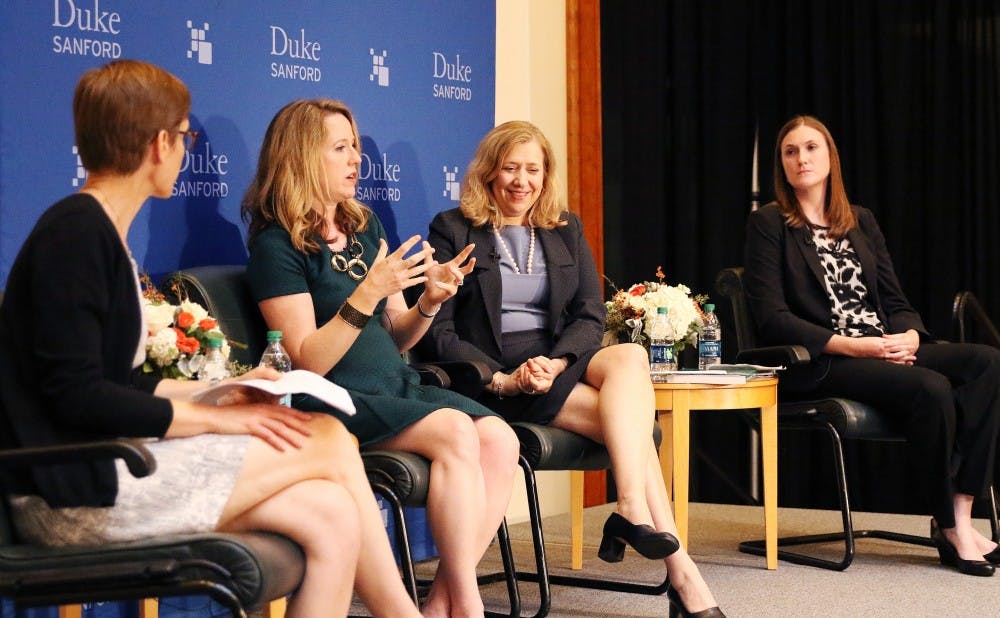Three high-ranking government officials outlined how everyday consumers can help combat human trafficking Thursday.
Susan Coppedge, Trinity ‘88 and the United States ambassador-at-large to monitor and combat trafficking in persons; Andrea Wilson, MPP/MBA ‘12 and a foreign officer in the State Department’s Office to Monitor and Combat Trafficking in Persons and Amy Pope, Law ‘09 and deputy assistant to the President and deputy homeland security advisor on the National Security Council, spoke at the Sanford School of Public Policy about the government’s role in monitoring and policing trafficking.
Coppedge—who was appointed to her current position by President Barack Obama in 2015—said her own inspiration came after joining the U.S. Attorney’s Office for the Northern District of Georgia and prosecuting trafficking cases.
“Hearing those young women’s stories, I couldn’t stop doing the work,” she said. “Just meeting those young girls and feeling I could make a difference for them was really what got me started in this. I just wanted to make sure they were heard.”
The panel was moderated by Judith Kelley, the Kevin D. Gorter professor of public policy, and centered around the panelists’ expertise.
Kelley explained that according to the United Nations, trafficking involves “the recruitment, transportation, transfer, harboring or receipt of persons, by means of the threat or use of force or other forms of coercion.”
The crime is highly integrated into broader global concerns, including economic pressures, immigration and the refugee crisis. Individuals who are trafficked, Pope said, often end up in forced labor.
“We as consumers fuel trafficking,” she said. “[Consumers should] demand that companies look into their supply chain and verify where the various parts are coming together. That’s the way we are going to see change.”
Recent changes in immigration and increased demand for certain goods have placed some individuals in vulnerable situations where they are more likely to be trafficked.
Because of the scope of the issue, the officials emphasized that people in any sphere—not just government—can fight human trafficking in their careers, education and daily choices.
“It’s insane how many things we purchase and we demand that actually use forced labor and trafficked labor,”senior Gloria Dabek said. “So I think it’s a weight that everyone can really burden.”
The officials also discussed the United States’ efforts to police trafficking both domestically and abroad. Coppedge said that her office funds projects around the world in countries that want to assist in disrupting human trafficking.
Additionally, the State Department releases its Trafficking in Persons report every year, which ranks countries by how well they have prosecuted perpetrators, protected victims and prevented future trafficking.
For several audience members, the panel provided a contrast to what they had seen at previous Sanford events.
“It was pretty incredible to have three women panelists and a woman moderating, talking about such an important issue,” said first–year Bo Carlson. “I guess just looking at their own personal leadership and experience in the State Department and government is pretty inspirational.”

